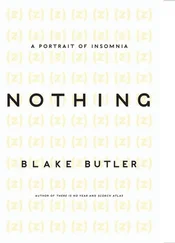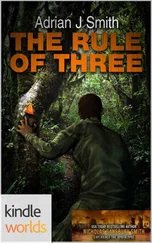I kept waiting for the tape to begin again and take me back to its beginning. Every second it did not felt like it could be the last, and when it was not the last it was just another like all the others.
Eras passed. I waited. I lay and couldn’t sleep. I ate food and could not taste it. I put my head against the ground. Every time I killed myself I reappeared. I woke up in the same rooms beside the same rooms. My face covered in its same hair. My eyes flummoxed with edges I could not force to turn against themselves, see nothing else.
I could not bear to open the door to the rest of the world again.
FLOOD: Every instant in the house I lived the voice grew louder in my flesh. It was all throughout my back, strung in my muscles, shaking my hair so hard I couldn’t have seen me in the mirrors if I did grow heart to look there. The voice felt clearer now inside these rooms, and only more so as each fiber of syllable it contained disappeared inside the total volume, becoming singular, monotone. The more I heard the voice the more I felt it was my wife’s voice, as any idea, though she did not sound like my wife. The edges of resin in her resonances pulsed just slightly off from what seemed all of her I felt about her. A charcoal layer. Like a mask made out of sound. And yet, even feeling where in the voice the voice was not her voice, I could not stop believing it. The voice said she was right there. It said she was in the house with me there and how had I not found her. The voice flexed static. How could I not see her in every field. I could already tell that my own thoughts, as I’d partitioned them apart from the limited understanding the tape allowed me, were bleeding together with the dead. Even as I thought this thought now, speaking to you, I could hardly tell how it was any different from what I felt was what I felt throughout the tape as I had always. Any minute soon now I might not be able to remember there was ever any other way . And that’s exactly what you’ve always wanted , the voice consoled me . To feel no split in your senses, no other layer to the world. It is enough to go on believing, right, yes, regardless of the gap in the nature between belief and the believed. I could not argue. Even as I tried, my mouth stayed shut. My thoughts pulsed and strobed hard in their contours where I could make them anything, and then did nothing. The voice grew on. It rose in volume . Believe me. Believe in me. Belove me. Love me. Live in me. Have me. Remain. Be. With every word the voice took more and more of the shape and tone of what I’d used or loved into it. Even as with each shift in its contour from something I believed that I could understand as real into something I knew as a stand-in for that thing, Still I could not stop myself from responding, even knowing each note was made to mock those I’d treasured in my heart as long as I had had an I to be. Soon it would be so loud, I knew, I wouldn’t be able to tell the voice from any other echo. I wouldn’t remember to know I’d known that, or that there’d ever been another way .
I came into a room and found my wife. There was nothing to differentiate the moment from any other, besides now that in a world where for as long as I could remember I’d been the only one alive, here she was standing, in our bedroom, at the window, beyond our bed. She had her back turned to me. Her hair was long.
She did not stutter as I entered, as if my presence to her was as steadfast and uncommon as the coming and going of a moon. I immediately could not remember what the house had felt like so long without her, though I also didn’t rush to take her in my arms. The room felt wider than it had been all the other times I’d come into it, endlessly repeating, on the tape, flush to my mind. I felt myself speak aloud to say her name but nothing came out, or I couldn’t hear me.
The skin of my wife’s back. The constellation of her moles and blemishes, the knobs of her bone through skin. I couldn’t smell her, but could sense the sense of what I knew of what I’d breathed in about her all our years. Breathing in rooms with faces close and seeing or not seeing, the leather of our time. It was immediately as if she had never not been right here beside me, in one of the many rooms our house forged out against all else, waiting for me to find her, to continue.
I could not remember any blood. No wire in the fiber of the light here. At last the tape had revealed something that buzzed my heart, and with it, my whole expanse, all of all I’d held smeared in me, still smearing. Now, at last, I felt, was really now, and nothing else had ever happened ever.
As I grew closer to my wife, I saw I could see through her. Her skin was not exactly skin, but more of a layer on the air that moved among the idea of what signified where I could read her. The pixels of her were made of something like a gauze. Beyond her face there was the wall there, the window showing nothing just beyond it but the wrecked color of the old world. The color splintered with her, bending, beginning.
I took her body by the arm. It was the same arm I had wrapped around me before, same I’d watched her feed or wash herself with. My ring glinted on her finger. Her flesh was warm, if in a way more like a machine that’s been on for too long running rather than the human heat I felt off my own brain. She turned toward me as I touched her, as if surprised to find me there, touching her now, today of all days. For what reason did I touch her. There were so many rooms in our whole house. I seemed to have knocked her out of somewhere else, like she’d forgotten where she was. Quickly, her expression shifted again to one I could see myself in, a recognition. She didn’t take her arm away. She didn’t pull me to her either. We stood there touching. I said some words. She said some words in response. I could not hear them, though my body understood. I was close enough now that her translucence clung together, again providing the appearance of a flesh. I could not remember how it felt to have seen through her. I did not want to.
And yet I knew something was wrong. I could feel where on the tape this image wasn’t like I remembered her having been once. This image had my wife’s eyes, my wife’s pores, and even though I didn’t need to hear her voice to feel her speaking, there was a gnarled roar underneath the seams. The reels of how our time and limbs connected ground against the face of the breadth of the house, the world surrounding elsewhere. Beneath her flesh was not her bones, her blood, but only spindles, indexed partitions meant to invoke in me the plane of what she was, what had been and was no longer. Through my wife, the voice could speak, and I could feel alive and haunt myself forever in that feeling, but it wasn’t where I was, and it did not hold the colors in it any history portended.
My wife caressed me calmly, expressionlessly. She filled where in me I needed her presence with something like the presence she’d always carried. The further on I let it ride, the wider the gap between what I even remembered having felt before grew between then and the absence of that feeling now. Soon I felt I would not need to remember how that feeling had felt at all, only ongoing in what this recording offered, in its want to fill my want. The replication wormed itself between itself and myself, eating our all, filling it over, becoming the present only held wholly forever.
The gap spread in my mind. I tried to turn away and found I could not move my body. Or, I could not control the way my body moved. Or, I was moving my body, but not in the ways that I’d expected, or even in the ways I felt I’d choose to move given the choice. But it was me moving. It was my flesh moving. I felt that I could see through my flesh too, or would be able to if I were far enough away from me to see me that way, as I had her. Which immediately gave me the feeling then that someone indeed was watching, far from any mirror, and they could see me as I felt, and perhaps then could see beyond that feeling, and what beyond it, which felt like nothing.
Читать дальше












